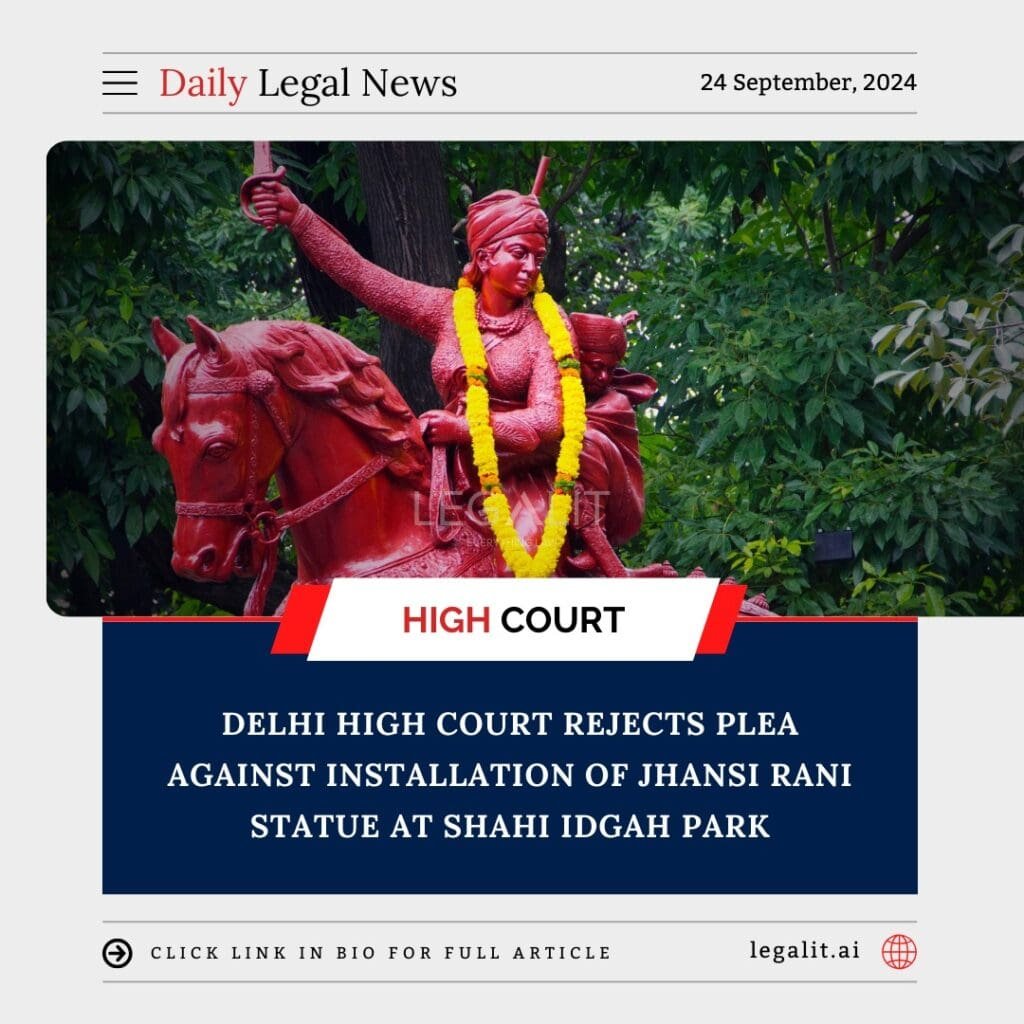
In a significant ruling, the Delhi High Court rejected a plea challenging the installation of a statue of Rani Lakshmi Bai, commonly known as Jhansi Rani, at Shahi Idgah Park. The plea was filed by a group of individuals who argued that placing the statue at this location would disrupt communal harmony and infringe upon the religious sanctity of the park, which is located near the Shahi Idgah mosque. The Court, however, dismissed these concerns, citing several key reasons.
1. No Violation of Public Order or Communal Harmony
The Delhi High Court ruled that the installation of the statue did not, in any way, threaten public order or disturb communal harmony. The Court observed that Rani Lakshmi Bai is a historical figure revered across communities for her role in the Indian freedom struggle, and her statue symbolizes national pride rather than religious discord. The bench emphasized that placing her statue in a public park did not amount to encroachment upon religious beliefs or practices.
2. Historical and Cultural Significance
The Court highlighted the cultural and historical significance of Rani Lakshmi Bai, pointing out that she represents the country’s heritage and its fight against colonialism. The judgment stated that memorializing her through a statue in a public space should be viewed as a celebration of national unity rather than as an issue of religious dispute. The Court underscored that such acts of commemoration help preserve the history of India’s struggle for independence.
3. Public Interest and National Monuments
Rejecting the plea, the Court noted that public parks and open spaces often serve as locations for national monuments and statues that honor historical figures. The bench ruled that the park’s proximity to the Shahi Idgah mosque was not a valid ground to oppose the installation, as public spaces are intended to accommodate symbols of both national significance and public interest.
4. Statue Not a Religious Symbol
The Court also clarified that Rani Lakshmi Bai’s statue is not a religious symbol but rather a national monument. Therefore, it does not infringe upon the religious rights of any community. The ruling emphasized that any objections based on religious sentiments must be evaluated on substantial grounds and cannot be upheld if they lack concrete reasoning or credible evidence of disturbance to religious practices.
5. Balance of Fundamental Rights
The judgment also balanced the fundamental rights enshrined in the Constitution, stating that the right to religious practice, as protected under Article 25, cannot override the right to commemorate national heroes in public spaces. The Court ruled that the installation of the statue did not impede any individual’s right to practice their religion or visit the mosque.
The Delhi High Court’s decision to reject the plea against the installation of Rani Lakshmi Bai’s statue at Shahi Idgah Park underscores the Court’s commitment to national unity, historical recognition, and the preservation of cultural heritage. The ruling sends a strong message that national symbols, particularly those that honor figures from India’s independence struggle, should not be mired in communal disputes, and their placement in public spaces serves the greater public interest.